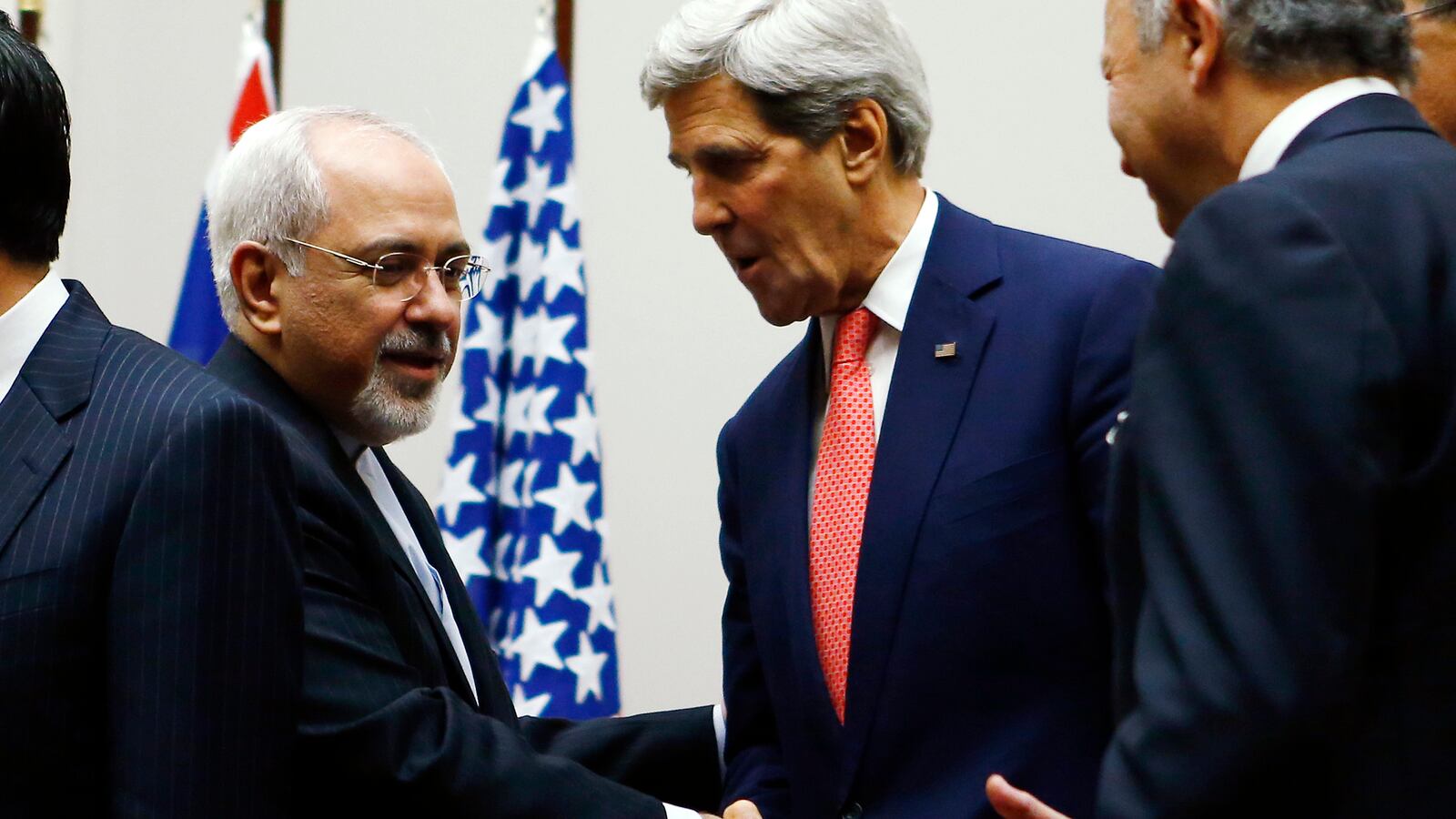The Obama administration this week will begin more forcefully to make the case to Congress that any new sanctions on Iran would threaten to upset the delicate talks that produced a deal last month in Geneva—one that the president hopes will end the Iranian nuclear crisis.
On Tuesday, Secretary of State John Kerry will appear before the House Foreign Affairs Committee to make that case in public. Later in the week he is scheduled to brief the Senate in a classified hearing closed to the press.
Rep. Ed Royce, the Republican chairman of the House Foreign Affairs Committee, on Monday, said he nonetheless expects Congress to pass new sanctions that will only kick in after the six-month period of negotiations expires in the interim deal signed last month.
“I expect Congress to pass additional measures now but not to have them kick until six months from now, so we can still have leverage at the table, especially since the Iranians have announced they will already be out of compliance,” Royce said.
The chairman was referring to reports late last month from Iran, quoting foreign minister Javad Zarif, who said that Iran would continue construction on the Arak Heavy Water Plutonium reactor, despite early reports from Geneva that Iran had agreed to halt such activity. Royce also pointed to recent statements from Iran’s president, Hassan Rouhani, who said at a rally this weekend that Iran would never end enrichment and that centrifuges would continue to spin. When Rouhani delivered this speech at a local university some students chanted, “Death to America.”
“The optics of that for Congress is not good,” Royce said.
Royce was particularly concerned about Zarif’s interview, published Monday in Time Magazine. In the interview, Iran’s foreign minister said that even if sanctions were implemented after the six-month period, and even if the sanctions were contingent on Iran violating its agreement, such a development would destroy the current negotiations.
“We do not like to negotiate under duress,” Zarif said. “And if Congress adopts sanctions, it shows lack of seriousness and lack of a desire to achieve a resolution on the part of the United States.” The Iranian foreign minister went on to say that Rouhani has also asked Iran’s parliament to avoid passing legislation that would enflame tensions with the West.
Royce said Zarif’s comments were out of line. “I think it’s especially inappropriate for him to send that message at the same time he is also saying he intends to continue construction on the Arak Plutonium program.”






